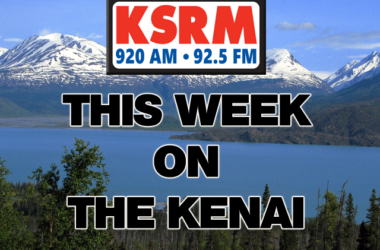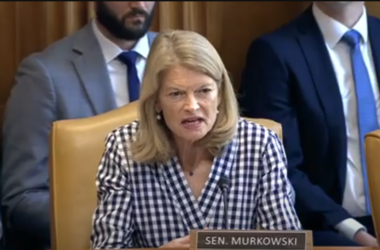A representative with the OneAlaska initiative spoke to a joint Kenai / Soldotna Chamber of Commerce last week. She is advocating for Alaskans to vote against Proposition 1 this fall, also known as The Fair Share Act.
The Fair Share Act aims to give the state an increased and more transparent share of oil production revenues. Proponents of the measure claim that the additional revenues from the Fair Share Act could be used by the Legislature to fund essential government services such as education, universities, health care, public safety, rural electric equalization, and marine highway transportation, as well as to fund capital projects, the permanent fund, and permanent fund dividends.
Jill Schaefer of OneAlaska says The Fair Share Act targets vital contributors to the state at a time where that simply is not feasible: “This initiative would cripple some of Alaska’s economy. It targets bigger oil companies that produce more oil, which is really unfortunate because those companies are the ones that employ our neighbors, my husband, and those provide jobs. Whether it’s the trickle-down effect or directly, having good stable jobs in Alaska right now is so important and vital to the small businesses that are hurting so badly.”
She also says that enacting measures that “hurt” the oil and gas industries will impact every Alaskan, not just those with jobs in those fields: “Those companies invest billions of dollars into Alaska. Whether it’s through smaller contractors, local businesses, or into our communities, our local government, our health services, education. The oil and gas industry is the number one driving factor of Alaska’s economy and you can say, ‘Hey, this campaign is paid for by those companies,’ but the effect is everyday Alaskans like you and me, small-business owners, people that are trying to raise their families here, that’s who it will effect. The small businesses is who will lose in this.”
The Fair Share Act would increase the gross minimum production tax for the larger North Slope fields from four percent to ten percent. It would also increase the ten percent minimum by one percent, up to a maximum of 15 percent, for each $5 per-barrel increase in the price of oil beginning at $50 per barrel of Alaska North Slope crude oil, West Coast.
It also aims to increase the net production tax for the larger North Slope fields by eliminating the $8 per-barrel credit and adding an additional 15 percent tax on producers’ profits, beginning at $50 per barrel of profit.
OneAlaska says that the issue is not as simple as looking at the potential profits and how they would benefit Alaska and the state’s residents. They claim that under the state’s current tax structure, Alaska’s oil production is just now stabilizing after years of declines, and the state encouraging new development projects will help bring Alaska out of recession. They feel The Fair Share Act is a short-term gain tax at the expense of new investment, jobs, and production in the oil and gas industries.






